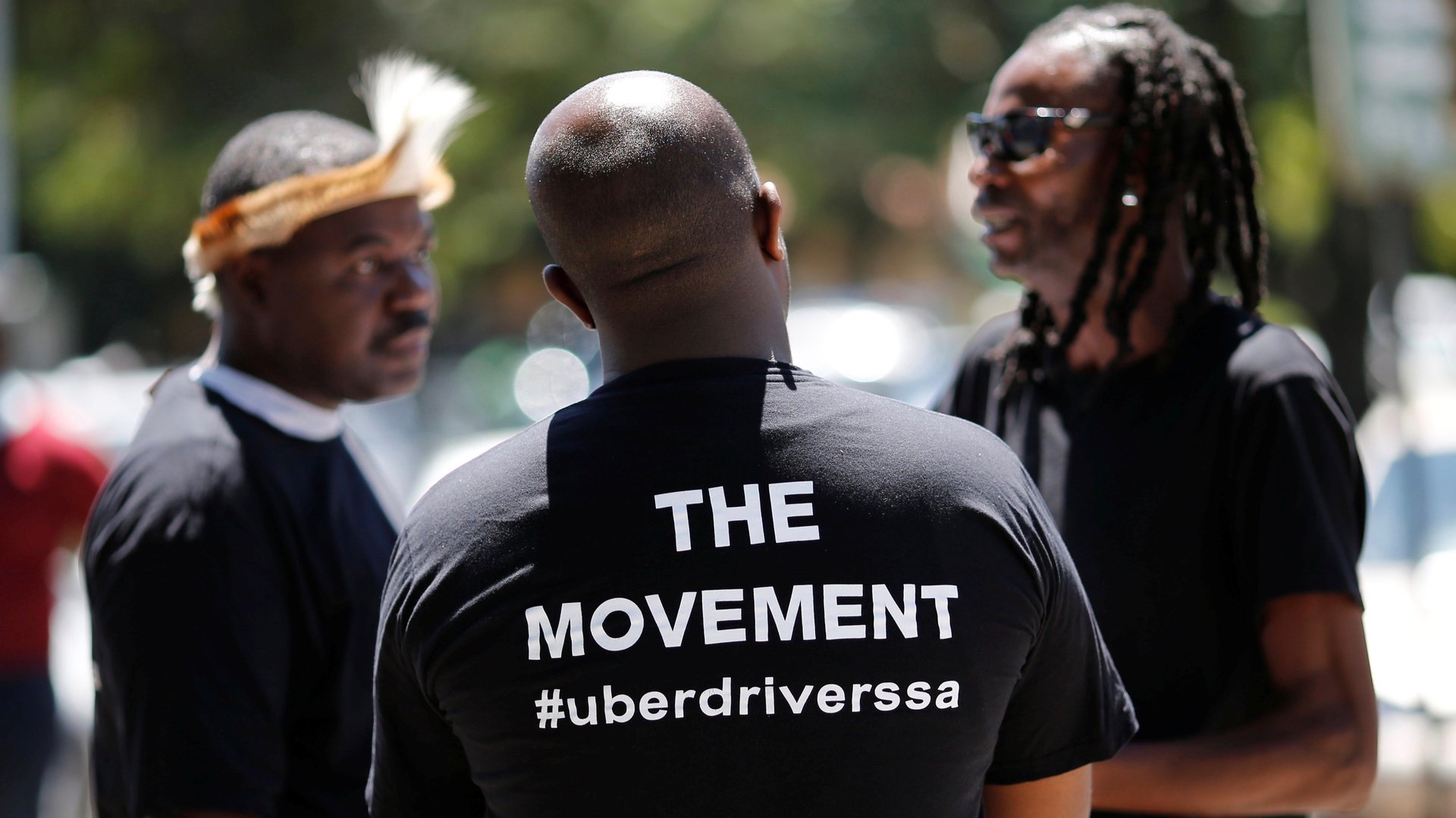Uber drivers in South Africa are the latest to be recognized as employees
Despite the independence implied in the term “drivers-partners,” Uber drivers are in fact employees of the ride-hailing service, at least according to South African labor regulations.


Despite the independence implied in the term “drivers-partners,” Uber drivers are in fact employees of the ride-hailing service, at least according to South African labor regulations.
An independent local arbiter this week ruled in favor of a group of drivers who were effectively fired by Uber when it deactivated them from the app without reason. One driver told local media that a whole year went by with no explanation from Uber South Africa, despite numerous attempts.
A group of drivers who call themselves The Movement took the matter to the Commission for Conciliation, Mediation and Arbitration over this dismissal, as well safety concerns after continued harassment from meter-cab drivers.
The commission argued while drivers can choose when to work, declining or accepting rides at will, because Uber’s app controls the means of their employment, this set “clear standards and performance requirements.”
Uber plans to challenge the decision in South Africa’s labor court, a higher body than the commission. It also said that the ruling only applies to the seven drivers who approached the CCMA. “There is a long legal challenge ahead before this ruling can be considered a win, or a loss for any side on this important issue,” Uber South Africa said in an emailed statement.
Around the world Uber’s global expansion has collided with local labor laws. The ride-hailing service says its drivers are partners or who use the app to generate business as any small business would, but more and more countries are finding that drivers should have the same rights as any other employees.
Invariably, Uber’s “driver-partner” model has meant the $68-billion tech startup has raked it in, with little obligation to the people who make it work. In South Africa, working for Uber has meant low wages for the many drivers subcontracted to vehicle owners, worsened by violence and intimidation from meter-cab competitors.
That is the gray area Uber drivers find themselves in, and not only in South Africa. In the United Kingdom last year, a court ruled that Uber may not classify its driver-partners as self-employed, which means they were entitled to the national living wage. In Switzerland this year, an insurance agency also ruled that Uber drivers are in fact employees, and not freelance contractors. In the US, drivers’ status has varied from state to state. The South African drivers who are part of “the movement” plan to continue their fight, too.